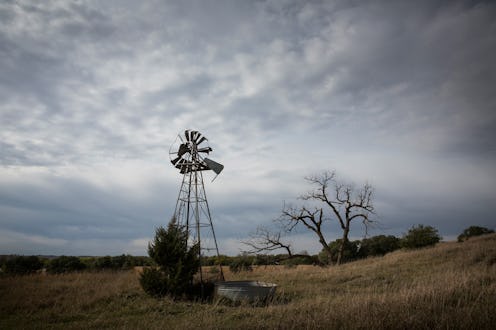News
Nebraska Made A Surprising Death Penalty Move
By a 32-15 vote Wednesday, the Nebraska legislature voted to repeal the death penalty. If the bill makes it past the state's Republican Gov. Pete Ricketts, Nebraska would be the 19th U.S. state to abolish capital punishment, according to Amnesty International. Ricketts has indicated that he would veto this kind of bill in the past, though, saying in a statement that it "puts the safety of the public and Nebraska families at risk."
But Ricketts' veto might not matter. According to state legislature law, an override of the governor's veto would require 30 votes — in other words, if everyone who had voted to repeal voted to override, the veto would be kaput. The vote was bolstered in the heavily Republican legislature by state Republicans who opposed the death penalty for fiscal, religious, and pragmatic reasons, according to NBC News.
Specifically, legislators said the state has had difficulty obtaining drugs for lethal injections; some lawmakers feel the penalty is arbitrarily applied to some murderers and not others; wrongful convictions of inmates on death row is a growing and dangerous problem; and the families of crime victims often endure more emotional exhaustion as a result of delays and appeals filed by death row inmates' attorneys, according to Reuters. If the vote holds in a veto override, Nebraska would become the first conservative state to repeal the death penalty since 1973, according to NBC.
State senators who supported the penalty said the state ought to have access to the tool to punish the most severe crimes, which might include bombings and attacks with multiple victims. In his statement, Ricketts said the state would be getting access to lethal injection drugs soon and would be able to resume executions. Nebraska hasn't executed a prisoner since 1997, according to NBC. There are currently 11 inmates on death row in Nebraska, according to the Death Penalty Information Center. Nationwide, there are 3,019 inmates on death row in the states that still have death penalty laws, according to the DPIC.
Prior to this bill, Maryland was the most recent state to officially repeal the death penalty in 2013. Then-Gov. Martin O'Malley, a practicing Catholic, argued that executions are not cost-effective, don't deter murders, and are not consistent with the "values of our people," according to the The Washington Post.
Previous critiques of the penalty, such as when a California federal judge overruled the Supreme Court and struck down the state's death penalty, have called it cruel and unusual punishment, according to CNN. In these instances, states cite examples of botched lethal injections in Oklahoma and Arizona where the inmates made "snoring" sounds or gasped for air for up to an hour and a half until they died.
Before Maryland, Connecticut was the 17th state to abolish its death penalty. Gov. Dannel Malloy cited the "unworkability" of the state's death penalty laws — one of the same reasons cited by Judge Cormac Carney when he struck down California's penalty. Malloy argued that laws surrounding penalties allow for endless appeals, which end up causing more unnecessary pain and waiting periods for victims' families. Malloy released a statement about his 2012 decision, according to CNN:
In the last 52 years, only two people have been put to death in Connecticut — and both of them volunteered for it. Instead, the people of this state pay for appeal after appeal, and then watch time and again as defendants are marched in front of the cameras, giving them a platform of public attention they don't deserve.
Ricketts' didn't elaborate on his argument that repealing Nebraska's death penalty laws would be dangerous to the community. A more common argument made by death penalty proponents is that the penalty often serves a level of justice to victims' families that can't be reached by other sentences such as life in prison. Additionally, proponents say the penalty protects inmates in the general prison population, who could be at risk if dangerous death row inmates were allowed to join them.
Images: Getty Images (3)
